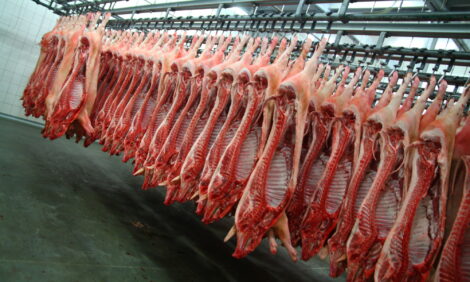



Effect of Local Anaesthesia and/or Analgesia on Pain Responses Induced by Piglet Castration
Researchers in Sweden found that lidocaine reduced pain in male piglets during castration and that meloxicam reduced pain after castration.Surgical castration in male piglets is painful and methods that reduce this pain are requested, according to Monica Hansson of the Swedish University of Agricultural Sciences in Uppsala and co-authors there and the Swedish Animal Health Service in Linköping. This study, published in Acta Veterinaria Scandinavica, evaluated the effect of local anaesthesia and analgesia on vocal, physiological and behavioural responses during and after castration. A second purpose was to evaluate if stockmen can effectively administer anaesthesia.
For the experiment, four male piglets in each of 141 litters in five herds were randomly assigned to one of four treatments: castration without local anaesthesia or analgesia (C, controls), analgesia (M, meloxicam), local anaesthesia (L, lidocaine), or both local anaesthesia and analgesia (LM). Lidocaine (L, LM) was injected at least three minutes before castration and meloxicam (M, LM) was injected after castration.
During castration, vocalisation was measured and resistance movements judged. Behaviour observations were carried out on the castration day and the following day. The day after castration, castration wounds were ranked, ear and skin temperature was measured, and blood samples were collected for analysis of acute phase protein serum amyloid A concentration (SAA). Piglets were weighed on the castration day and at three weeks of age. Sickness treatments and mortality were recorded until three weeks of age.
Piglets castrated with lidocaine produced calls with lower intensity (p<0.001) and less resistance movements (p<0.001) during castration. Piglets that were given meloxicam displayed less pain-related behaviour (huddled up, spasms, rump-scratching, stiffness and prostrated) on both the castration day (p=0.06; not significant) and the following day (p=0.02).
Controls had less swollen wounds than piglets assigned to treatments M, L and LM (p<0.001).
The proportion of piglets with high SAA concentration (over threshold values 200, 400 mg/l) was higher (p=0.005; p=0.05) for C + L compared to M + LM.
Ear temperature was higher (p<0.01) for controls than for L and LM. There were no significant treatment effects for skin temperature, weight gain, sickness treatments or mortality.
The Swedish researchers concluded that lidocaine reduced pain during castration and that meloxicam reduced pain after castration. Furthermore, Hansson and co-authors noted that the stockmen were able to administer local anaesthesia effectively.
Reference
Hansson M., N. Lundeheim, G. Nyman and G. Johansson. 2011. Effect of local anaesthesia and/or analgesia on pain responses induced by piglet castration. Acta Veterinaria Scandinavica, 53:34. doi:10.1186/1751-0147-53-34
Further Reading
| - | You can view the full report by clicking here. |
August 2011








